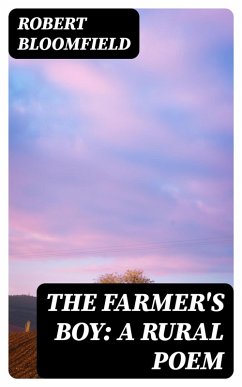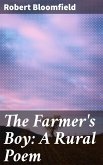In "The Farmer's Boy: A Rural Poem," Robert Bloomfield masterfully interweaves the themes of rural life, nature, and the human experience, creating a vivid tapestry that captures the essence of agrarian existence in early 19th-century England. Written in a pastoral style, the poem employs simple yet evocative language, allowing readers to immerse themselves in the beauty and hardships of rural labor. Bloomfield's work serves as both an homage to the agrarian lifestyle and a critique of the rapidly industrializing society, positioning him within the Romantic literary context where appreciation for nature and common folk was paramount. Robert Bloomfield, born in 1766 to a modest family in Suffolk, grew up amidst the landscapes that inspired his poetry. His own experiences as a farm laborer shaped his perceptions of the dignity and struggles of rural life. Bloomfield's deep appreciation for the natural world and his empathy for the working class resonate powerfully throughout his writing, making him a significant figure in the transition from the Enlightenment to Romanticism. I highly recommend "The Farmer's Boy" to readers interested in exploring the intricate connections between humanity and nature. Bloomfield's poignant reflections and vivid imagery invite readers to consider the often-overlooked beauty of the agrarian world, making this a timeless classic that speaks to both the heart and the spirit.
Dieser Download kann aus rechtlichen Gründen nur mit Rechnungsadresse in A, B, BG, CY, CZ, D, DK, EW, E, FIN, F, GR, H, IRL, I, LT, L, LR, M, NL, PL, P, R, S, SLO, SK ausgeliefert werden.









